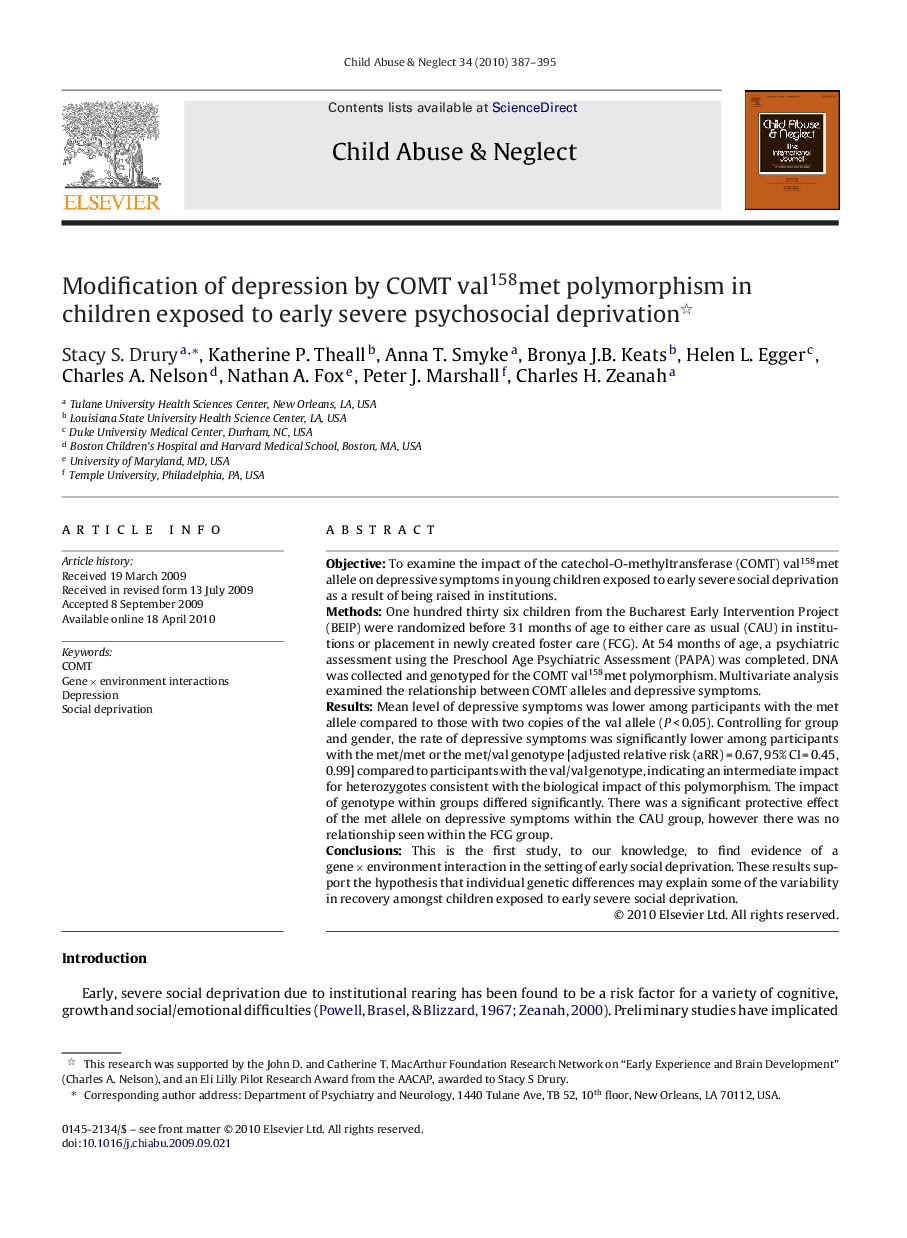| Article ID | Journal | Published Year | Pages | File Type |
|---|---|---|---|---|
| 345307 | Child Abuse & Neglect | 2010 | 9 Pages |
ObjectiveTo examine the impact of the catechol-O-methyltransferase (COMT) val158met allele on depressive symptoms in young children exposed to early severe social deprivation as a result of being raised in institutions.MethodsOne hundred thirty six children from the Bucharest Early Intervention Project (BEIP) were randomized before 31 months of age to either care as usual (CAU) in institutions or placement in newly created foster care (FCG). At 54 months of age, a psychiatric assessment using the Preschool Age Psychiatric Assessment (PAPA) was completed. DNA was collected and genotyped for the COMT val158met polymorphism. Multivariate analysis examined the relationship between COMT alleles and depressive symptoms.ResultsMean level of depressive symptoms was lower among participants with the met allele compared to those with two copies of the val allele (P < 0.05). Controlling for group and gender, the rate of depressive symptoms was significantly lower among participants with the met/met or the met/val genotype [adjusted relative risk (aRR) = 0.67, 95% CI = 0.45, 0.99] compared to participants with the val/val genotype, indicating an intermediate impact for heterozygotes consistent with the biological impact of this polymorphism. The impact of genotype within groups differed significantly. There was a significant protective effect of the met allele on depressive symptoms within the CAU group, however there was no relationship seen within the FCG group.ConclusionsThis is the first study, to our knowledge, to find evidence of a gene × environment interaction in the setting of early social deprivation. These results support the hypothesis that individual genetic differences may explain some of the variability in recovery amongst children exposed to early severe social deprivation.
